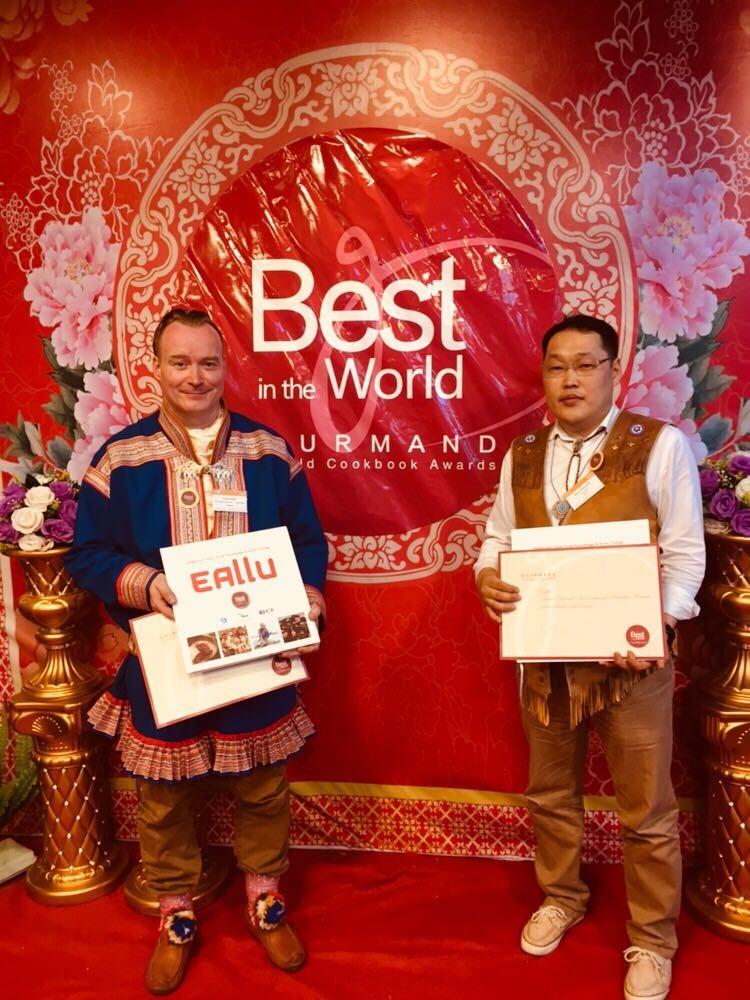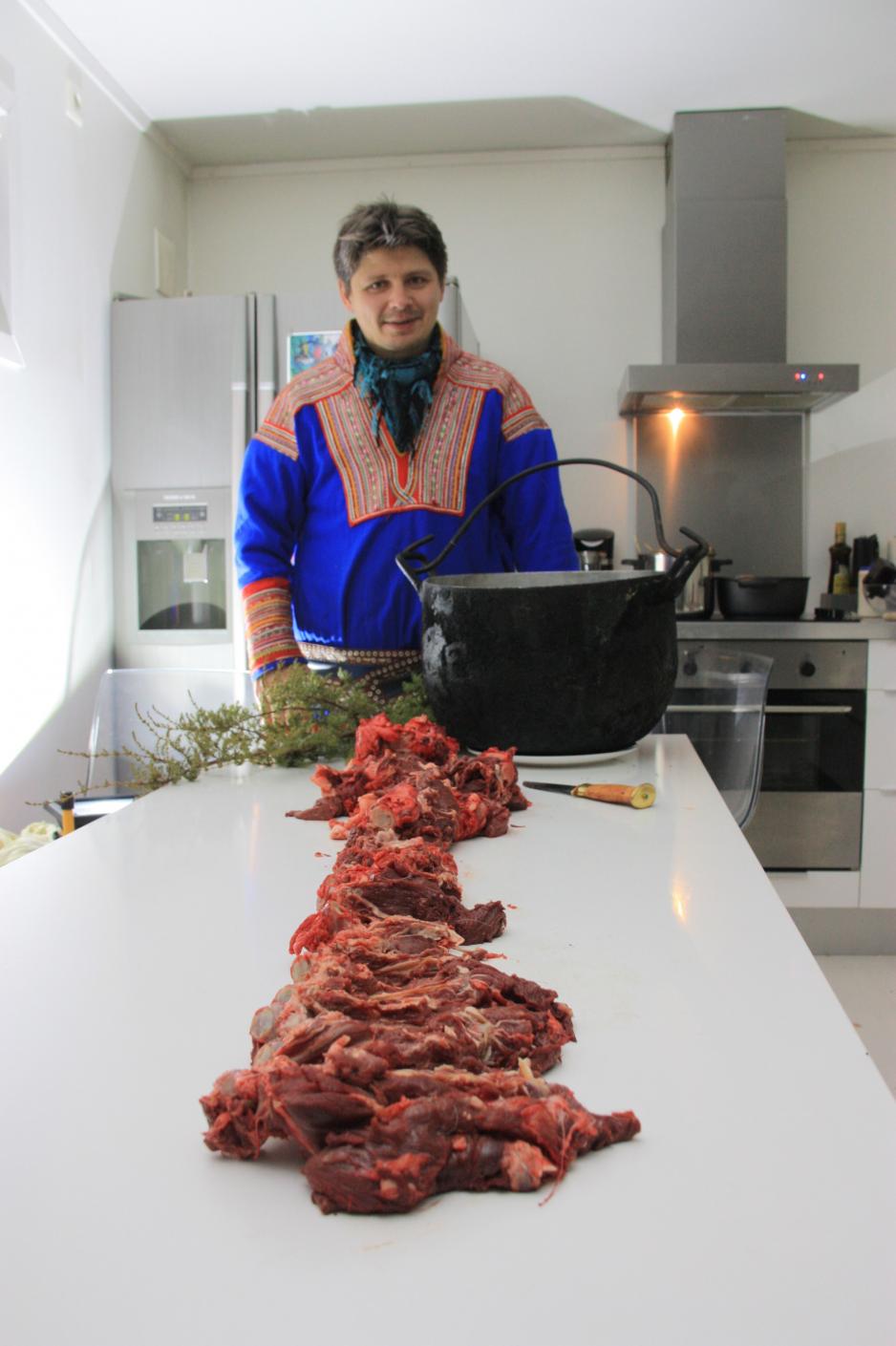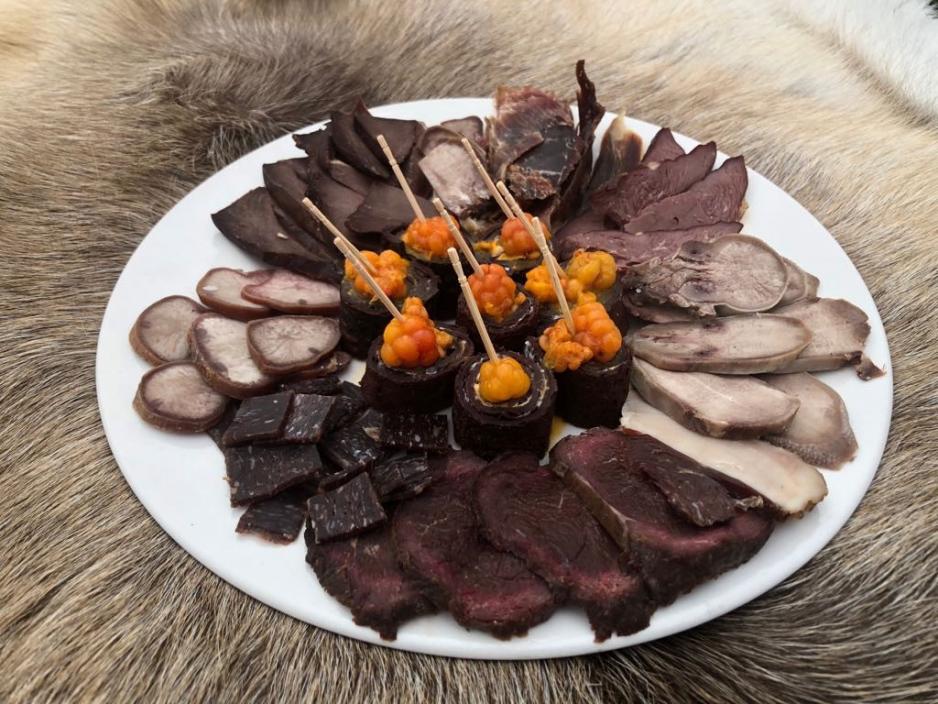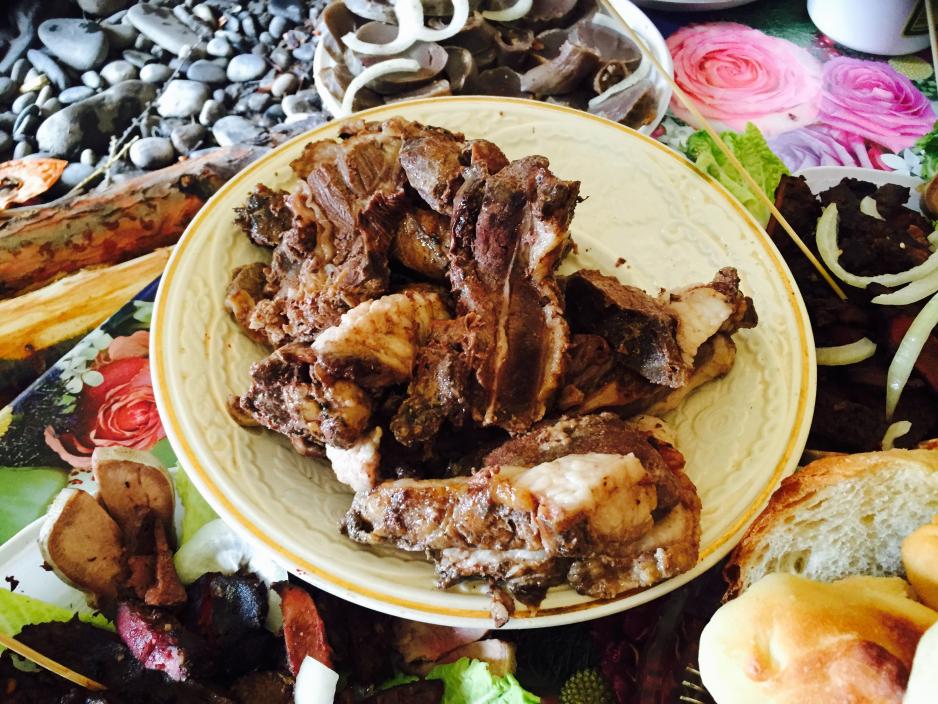Arctic indigenous cookbook wins Gourmand World Cookbook Award
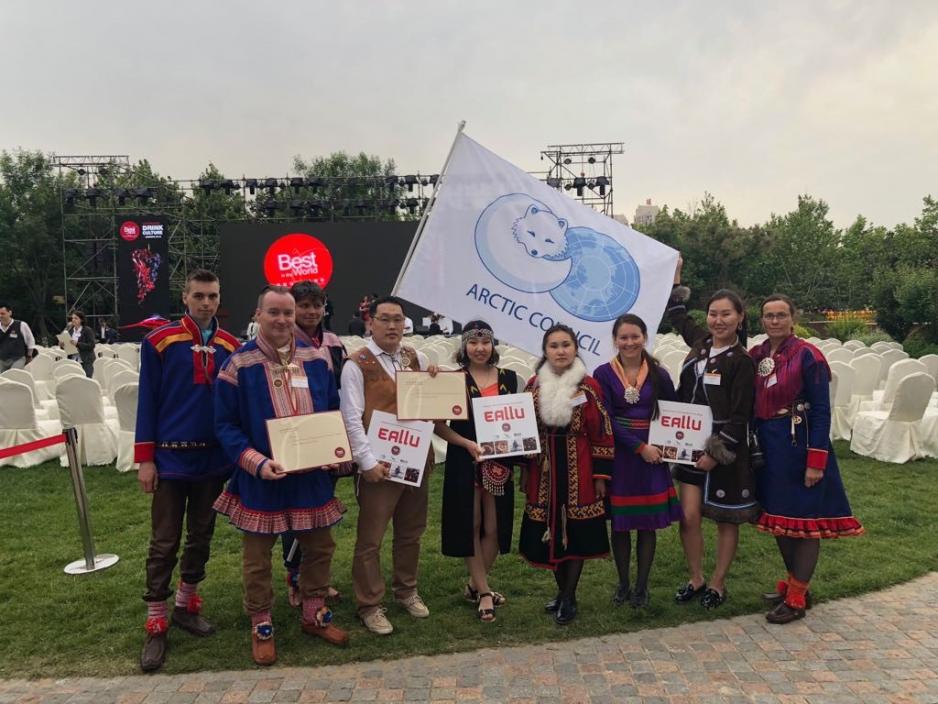
A food book written by indigenous youth won the main prize as "Best Food Book of the Year 2018". The book is the first overview of the culinary world of Arctic indigenous peoples.
The food book "EALLU –Food, Knowledge and How We Have Thrived on the Margins” won the "Oscars of the cookbook world" at the 2018 Gourmand World Cookbook Awards in Yantai, China, which were announced on 26 May.
Deep knowledge about indigenous food culture
The EALLU book is the first of its kind: a team of 50 young indigenous authors present 14 different Arctic indigenous peoples´ food cultures, including knowledge about food, raw materials, processing and conservation, food security, health, and wellbeing. “It’s about our food traditions, our traditional nomadic lifestyles, our local economies, our philosophy, and our worldviews”, says Mikhail Pogodaev, Chair of the Association of World Reindeer Herders and co-leader of the EALLU project.
"To receive such an award from the mainstream food publishing industry is a powerful recognition of the richness and depth of a focal point of our cultures, our relationship to food. Because this is much more than just a book of recipes", Mr Pogodaev adds.
Stiff competition
The EALLU book was nominated in several categories, namely "Arctic", "Sustainable", and "Culinary Heritage" as well as in the "Best Food Book of the Year in all categories". Hundreds of books entered the competition, presenting stiff competition for EALLU. But in the end, the book was selected "Best Book" among 16 nominees in this category.
"We are incredibly proud of this achievement and our fantastic team of indigenous youth from across the Arctic who bridged generations and distances to create this extraordinary book," says Anders Oskal, EALLU project leader and Secretary General of the Association of World Reindeer Herders.
"This book provides a snapshot of both the rich, diverse and living culinary traditions as well as introduction to the food systems of Arctic Indigenous Peoples." (executive summary of "EALLU –Food, Knowledge and How We Have Thrived on the Margins")
A cookbook about peoples
EALLU is not only an ordinary cookbook with a list of recipes! The intention was rather to create "a cookbook about peoples": "This is the story of Arctic Indigenous Peoples, their food resources, their culinary traditions, and their traditional knowledge on food", as the executive summary of the book reads.
The book provides a holistic overview and multiple examples of Arctic indigenous food systems, including how food is collected, prepared, processed, conserved, and consumed. It also provides first-hand traditional knowledge on food in the forms of stories, anecdotes, values, and insights by various indigenous groups from across the Russian Federation, Fennoscandia, Canada, Mongolia, and the US.
Traditional knowledge in practice
The book highlights that it represents "ancient knowledge enacted in the everyday", and is thus different from traditional knowledge constructed in the form of a declaration or political statement.
Further, the book shows an extraordinary engagement by indigenous youth from many cultures across the Arctic. Over the course of the EALLU project, there have been 30 EALLU community-based workshops, seminars, and traditional food-related events across Eurasia and North America involving especially young indigenous peoples.
Editor in Chief Mr Philip Burgess from the International Centre for Reindeer Husbandry highlights the crucial value of EALLU in documenting and bringing forth traditional indigenous knowledge related to food; knowledge that is little documented and that in some instances is now being lost.
Wake-up call: a public health crisis
EALLU is also meant as a wake-up call to the rapid change that indigenous food systems are facing. "In some areas, the skills and knowledge needed to slaughter, hunt, gather, feed ourselves and our communities and conserve food traditionally are in peril", the book’s introduction reads.
Unprecedented dietary shifts away from traditional foods cause a real public health crisis in some Arctic regions. Decreased consumption of traditional foods and increasing reliance on commercial food have been found to led to physical, social, and mental illnesses and contribute to situations of food insecurity.
Lessons for the World
The world can learn from indigenous approaches to change the global food system towards more sustainable and less wasteful handling of food sources: "The traditions of all reindeer herding peoples to utilize everything from the reindeer remains strong, and is something the world could learn from as the needs to change the global food system has become increasingly apparent", Oskal explains.
He thus hopes that EALLU will have a broader impact: "Having won this prize might signal a shift in how mainstream society values our food knowledge and that our societies can leverage this recognition to better community physical, mental and economic health."
The book is a product of an Arctic Council project entitled EALLU: Indigenous Youth, Arctic Change and Food Culture. The project is initiated and led by the Association of World Reindeer Herders (the circumpolar NGO for all 24 indigenous reindeer herding peoples), in close partnership with five Arctic States and the six indigenous organisations of the Arctic Council.
´Eallu´ means a herd (of reindeer) in the indigenous Sámi language, closely connected to the word ´eallin´, which means life.
